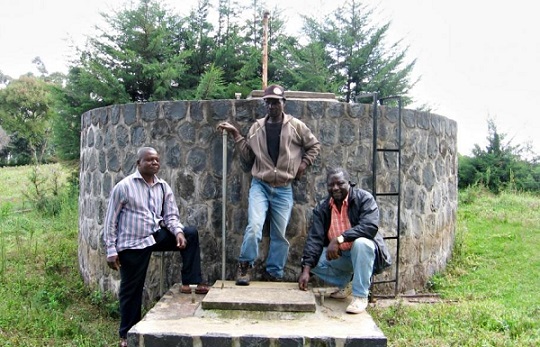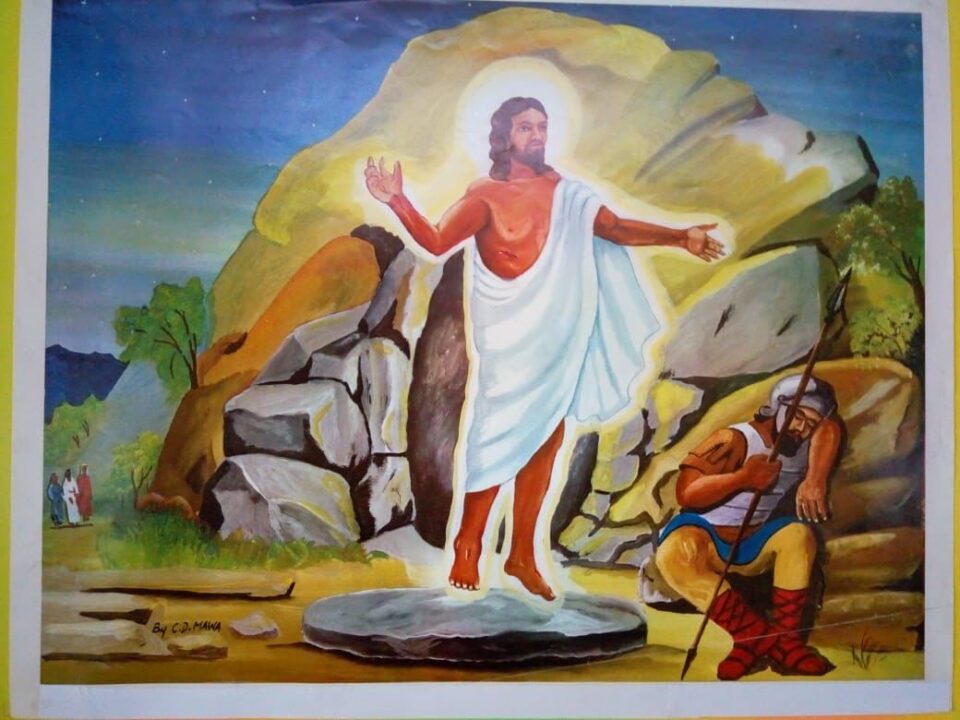- Contact us on - Contactez-nous sur - Contacte-nos em
- +233-30-277-8867/8
- +233-30-277-2548
- secam@secam.org
Partnerships Strengthen Sisters’ Clean Water Projects Worldwide: Focus on Africa
Partnerships Strengthen Sisters’ Clean Water Projects Worldwide: Focus on Africa
Global Sisters Report (GSR) || By Soli Salgado || 09 October 2017
 ….
….
Global Sisters Report took a closer look at a couple of collaborative projects among women religious, both of which empower local leaders to clean up the water in their region, giving them the proper tools to be self-reliant.
Partnerships eliminate waterborne diseases in Cameroon
One organization born in Cameroon has relied on partnerships, nurturing local leaders who run the project long after the sisters leave.
Congregation of Notre Dame Sr. Cathy Molloy went to Cameroon from New York City in the early 2000s, initially to establish a new Notre Dame community. While there, she also wrote stories for her community’s publication, Dialogue.
“I was seeing all kinds of things I had never seen before and hearing all kinds of stories I had never heard before,” particularly as they related to water, she said.
Throughout the region of Kumbo, located in the highlands, children sometimes have to miss school to take buckets to the local, often polluted stream to fetch water, Molloy said.
“We’ve lost children who went down with their buckets at the end of a rainy season and got pulled into the streams and drowned.”
Around the same time Molloy was sending articles back to the congregation in Ottawa, Ontario, Sr. Norma McCoy, also of the Congregation of Notre Dame, was working on water issues in Ottawa,* and working to expand her ministry to include more outreach.
Molloy’s articles helped raise money for 17 women who were members of a local support group for widows and single mothers in Kumbo. The money was used to provide those women with access to clean spring water by installing public faucets, but the sisters were just getting started.
News that help had come “spread like wildfire,” Molloy said, with other villages approaching her about bringing water systems to them. Eventually, Molloy and McCoy founded OK (Ottawa-Kumbo) Clean Water Project in 2003.
The committee eventually got involved in 53 villages, and its success is rooted in its various partnerships:
Village water management committees that oversee the processes and include Engineers Without Borders, a nonprofit that partners with developing communities worldwide to help meet basic human needs;
Sisters from congregations in Cameroon who introduce the project to their villages;
The congregation’s schools in Canada, the United States and Japan that hold fundraisers that contribute a third of the project’s annual income;
Connections between local Muslim and Christian communities, which Molloy noted are especially harmonious, with the country’s northern region being predominantly Muslim and the southern part, Christian.
Where OK Clean Water has worked — whether introducing, expanding or renovating existing water systems — cases of waterborne diseases have been eliminated, Molloy said. Since its founding, the project has directly served more than 80,000 people.
To receive help, locals must file an application to OK Clean Water and meet a few criteria. The village must locate an accessible source of spring water within a certain distance. Once the source has been located, the engineer runs tests to ensure there would be enough water in both rainy and dry seasons. The village must also agree to a partnership, providing the unskilled labor and materials for construction while OK Clean Water provides skilled labor and helps with the piping.
Once an application is approved, villagers build a catchment, typically carrying materials uphill on their heads and backs. They then dig a trench and build a storage tank, and later go farther down the hill to build taps.
That Kumbo is located in the highlands, Molloy said, is a reason the project could be so successful with a gravity-fed system: The catchment at the top of the hill “catches” the stream water and feeds it into the storage tank below, which can hold around 15,000 liters. Having access to stream water also keeps them from needing filters.
While the first 10 years of the program were mainly spent raising money to install the systems, now the focus is on education for sustainability so the work can be handed over to locals. This includes training leaders, working with committees and caretakers, and getting young people involved.
Edwin Visi, a local water engineer, is the country director of the program and is poised to step in to lead the project.
“It’s about instilling leadership so that when one team leaves, it doesn’t just fall apart, which can and has happened,” Molloy said. “It’s now a local project in local hands.”
“The resources are too limited and the need is too great to see projects not work. The people need to have ownership. It has to belong to them, and they have to be empowered. Otherwise, it’s part of the whole African story about people coming in and doing,” she said.
“This was not a handout; it was a hand-up.”
Read more… Global Sisters Report…

